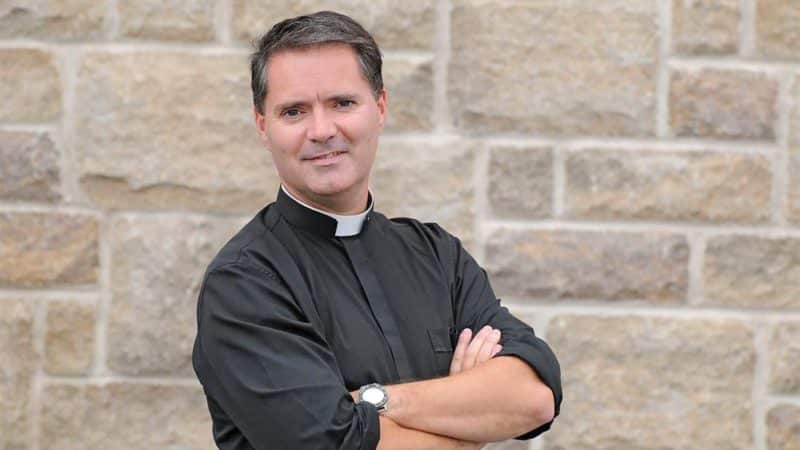Diocesan priests from throughout New Zealand were challenged to unleash the giftedness of the people in parishes by making disciples out of them.
Around 185 priests from all six New Zealand dioceses who gathered in Christchurch from September 10-14 for the fourth national priests’ assembly listened to Canadian Fr James Mallon, author of Divine Renovation — From Maintenance to a Missional Church and member of the Global Catholic Alpha Board, talk about the need to convert people in the pews into “missionary disciples”.
“The one thing that I dream the priests would take away [from this talk] is a conviction that a renewed and healthy parish is possible,” said Fr Mallon.
About 18 years ago, he transformed a small parish in Halifax, Canada, into a vibrant “missionary outpost”.
“Are parishes moving in the right direction? Are we making disciples? Or are we just providing services to consumer Catholics?” are questions that parish priests should be asking themselves, said Fr Mallon.
At his talk to the priests, he said the Catholic translation of the Great Commission (Matthew 28:16-20) had somehow dropped the part about making disciples.
“For 1600 years, we’ve had a translation of the Scripture that has rendered the task of making disciples of the nations as ‘teaching the nations’. Our Great Commission, for centuries has been go, baptise, teach and teach some more. And that’s exactly what we do,” he told the priests.
He said this mistranslation of the Great Commission had priests doing sacraments, catechesis and more catechesis.
“We rarely evangelise. We rarely make disciples,” he noted.
The Alpha programme, which Fr Mallon adapted to Catholic use from the Anglican Church, “is an amazing tool to evangelise people who don’t go to church, who don’t believe in Jesus and even to evangelise people who do go to church”, he said.
At present, he said, the Church teaches its members to become practising Catholics.
“Practising Catholics means effectively doing the bare minimum that’s required of me: be good, go to Mass, check the boxes. And then I go to heaven when I die,” he said.
“It’s a good thing not to sin,” he added, “but what is the motivation? Is it motivated by love or really simply out of fear, obligation or duty?”
Fr Mallon said clericalism creates a co-dependent relationship between lay people and clergy and allows a culture of immaturity to exist among the laity.
“We transferred normative Christianity as the domain of the ordained or the religiously professed. The only person who is expected to become a mature Christian is the priest and the nun. If you said 20 years ago that so and so is giving their life to God, that meant he or
she were either going into the seminary or going to the convent,” he explained.
Giving one’s life to God is what Baptism means, he stressed. And the task of evangelising is the task for all Catholics.
“If you’ve got a parish that has a maintenance culture that has stagnated, then the priest is the leader. The priest has got to mobilise a parish so that the parish itself begins to make disciples,” he said.
Fr Mallon said what he likes about Alpha is that it simplified the message about who Jesus is, what he did and the significance of his saving work. The programme also emphasises the relationship with the Holy Spirit.
“Here’s another problem with the Church. We have become very suspicious of experiential spirituality. We’re suspicious of religious experience in our world but people in the world around us are desiring experience,” he said.
Asked about the “Kiwi drift” phenomenon, Fr Mallon opined that it is more “a secular
drift”.
“It’s the drift of secularisation. I think if we wait long enough, it’ll be a ‘brown’ drift
as well. It’s got nothing to do with race per se as it does with culture,” he said.
“In the past, a culture could hold sway over families maybe for two or three generations.
But no previous culture ever had to contend with social media or Internet or television.
The repetitive communications and the immersive nature of present day [social
media] culture entirely dominates other cultures,” he said.
He said the drift will continue if Catholics don’t start evangelising and making disciples.
Fr Mallon invited people interested in his ministry to check out its website : www.divinerenovation.net. Divine Renovation apps can also be downloaded on iPhones and Android phones. Podcasts can be downloaded from iTunes and YouTube.

Reader Interactions